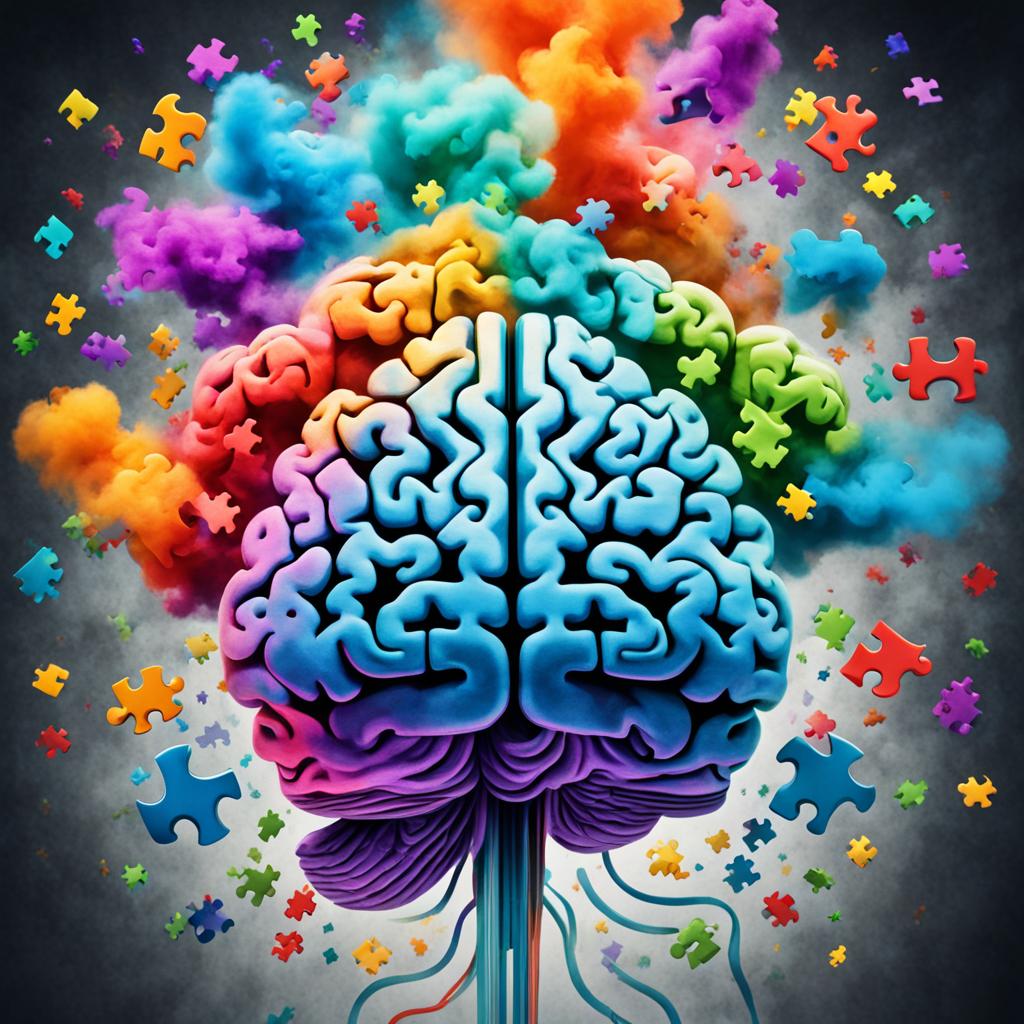Did you know that approximately 50% of Americans believe in at least one conspiracy theory?
Conspiracy theories have always been a part of human history, but in recent years, they have gained significant traction. From secret societies controlling the world to government cover-ups, these theories capture the imagination and curiosity of a wide range of individuals.
But what drives people to believe in these seemingly outlandish explanations? Are there psychological factors at play? In this article, we will explore the psychology behind conspiracy theories, shedding light on why people believe them and how they impact our society.
What Are Conspiracy Theories?
Conspiracy theories, a pervasive aspect of our modern culture, are narratives that propose hidden plots or secret alliances behind significant events or phenomena. These theories often challenge official explanations and make bold claims about secretive forces operating in the shadows. While some conspiracy theories have been proven false or unfounded, they continue to captivate the imaginations of many individuals.
An example of a well-known conspiracy theory is the belief that the moon landing in 1969 was staged by the United States government. Proponents of this theory claim that the moon landing was an elaborate hoax designed to assert dominance in the space race against the Soviet Union. Another widely discussed conspiracy theory is the belief that the Illuminati, a secretive and powerful group, controls world events and manipulates governments and economies for their own gain.
Conspiracy theories often share common characteristics. They tend to rely on an intricate web of hidden connections, featuring various actors and organizations working together to achieve a sinister objective. These theories are often fueled by distrust of authorities and a desire to uncover hidden truths. Conspiracy theories may also provide a sense of certainty in a world that is often complex and uncertain.
“Conspiracy theories are perhaps the ultimate expression of distrust in institutions and established narratives. They offer alternative explanations to events that challenge the status quo, appealing to those who feel marginalized or powerless.”
Conspiracy theories can range from the supernatural, such as claims of extraterrestrial cover-ups, to the political, such as allegations of government plots or corporate conspiracies. They are characterized by their ability to challenge widely accepted explanations and attract a dedicated following of believers. While some theories are based on genuine skepticism and critical thinking, others can perpetuate harmful misinformation and lead to the erosion of public trust.
The understanding of conspiracy theories and their impact on society is a complex subject that requires careful examination. In the following sections, we will explore the psychological factors, cognitive biases, and social dynamics that contribute to the formation and dissemination of conspiracy theories, shedding light on this fascinating and often perplexing aspect of human belief.
The Appeal of Conspiracy Theories
Conspiracy theories have a unique allure that captivates certain individuals, drawing them into a world of hidden plots and secret agendas. But what exactly makes conspiracy theories so appealing? Unpacking the psychology behind their appeal reveals several key factors that contribute to their widespread embrace.
One such factor is the human desire for control. In a world filled with uncertainty and complexity, conspiracy theories offer a sense of order and understanding. They provide a framework for interpreting events and attributing blame, empowering individuals with a sense of agency over their surroundings.
Another factor is the quest for certainty. Conspiracy theories provide a reassuring narrative that explains puzzling occurrences and helps individuals make sense of the world. They offer a seemingly logical explanation where others might see randomness or chaos, providing comfort and reducing anxiety.
Moreover, the appeal of conspiracy theories lies in the satisfaction of uncovering hidden explanations or “the truth.” They offer individuals a sense of superiority, as if they possess privileged knowledge that others are unaware of. This feeling can be empowering and gratifying, boosting self-esteem and reinforcing one’s worldview.
“Conspiracy theories give individuals a sense of purpose and meaning, as they believe they are part of a select group that sees through the deception of mainstream narratives.”
Furthermore, conspiracy theories often tap into deep-seated emotions and tap into individuals’ fears and suspicions. They exploit feelings of injustice, alienation, and powerlessness, providing a platform for individuals to voice their grievances and frustrations.
- Desire for control
- Craving for certainty
- Satisfaction from hidden explanations
- Exploitation of emotions and fears
The appeal of conspiracy theories lies in their ability to fulfill psychological and emotional needs. By providing a structured worldview, a sense of certainty, and a community of like-minded individuals, these theories offer a comforting refuge from the complexities and uncertainties of the world. However, it is essential to critically evaluate these theories and understand the potential negative consequences they can have on individuals and society at large.


Cognitive Biases and Conspiracy Beliefs
When it comes to conspiracy beliefs, cognitive biases play a significant role in their formation and acceptance. These biases are inherent psychological tendencies that influence the way we process information and make decisions. Understanding how cognitive biases contribute to conspiracy beliefs can shed light on why certain individuals are more susceptible to embracing these theories.
Confirmation bias is one of the primary cognitive biases that influence conspiracy beliefs. It refers to the tendency to seek out and interpret information in a way that confirms pre-existing beliefs or hypotheses. When individuals hold a belief in a particular conspiracy theory, they often seek out evidence that supports their beliefs while disregarding or dismissing contradictory information. This bias reinforces their conviction in the conspiracy theory and makes it challenging for them to consider alternative viewpoints.
Confirmation bias is like wearing blinders that prevent individuals from objectively evaluating information that contradicts their existing beliefs.
Another cognitive bias relating to conspiracy beliefs is the illusory pattern perception. This bias refers to our inclination to perceive meaningful patterns or connections in unrelated or random data. In the realm of conspiracy theories, individuals may interpret coincidences or unrelated events as evidence of a grand conspiracy. They often see patterns where none exist, lending credibility to their beliefs and reinforcing their conviction in the conspiracy theory.
In addition to confirmation bias and the illusory pattern perception, there are other cognitive processes that contribute to the formation and acceptance of conspiracy beliefs. These include selective thinking, in-group bias, and availability heuristic. These biases influence how individuals process and evaluate information, creating a fertile ground for conspiracy beliefs to take hold.
By recognizing and understanding these cognitive biases, researchers and psychologists can gain insights into why conspiracy beliefs persist and why they are often challenging to debunk or disprove. It also highlights the importance of critical thinking and skepticism in evaluating conspiracy theories, as these biases can cloud our judgment and prevent us from examining the evidence objectively.


Confirmation Bias: The Reinforcement of Beliefs
Confirmation bias reinforces individuals’ beliefs in conspiracy theories by validating their existing viewpoints and dismissing contradictory evidence. It creates an echo chamber where individuals surround themselves with information that confirms their beliefs, reinforcing their conviction in the conspiracy theory. Over time, confirmation bias strengthens the grip of the conspiracy belief, making it difficult for individuals to entertain alternative perspectives or critically evaluate the evidence.
Cognitive biases shape the way we perceive and interpret the world around us. By understanding how these biases contribute to conspiracy beliefs, we can gain a deeper understanding of why individuals are drawn to these theories. In the next section, we will explore the role of skepticism and critical thinking in navigating the landscape of conspiracy theories.
The Role of Skepticism and Critical Thinking
Skepticism and critical thinking play a crucial role in evaluating conspiracy theories. In today’s information age, where misinformation and disinformation are rampant, it is essential to approach conspiracy claims with a skeptical mindset.
Critical thinking involves the ability to question and analyze information, distinguish between credible sources and unreliable ones, and evaluate the logical coherence of arguments. Contrary to popular belief, being skeptical does not mean outright rejection of conspiracy theories without justification; instead, it promotes a healthy balance between open-mindedness and critical examination.
Skeptics and critical thinkers are equipped with the tools necessary to navigate the complex web of conspiracy narratives. They employ logical reasoning, evidence-based evaluation, and the examination of alternative explanations to assess the validity of conspiracy claims.
By questioning the credibility and motives of those promoting conspiracy theories, individuals can safeguard themselves against falling prey to unfounded beliefs. Skepticism encourages a careful evaluation of the available evidence, allowing for a more informed perspective.


It is the mark of an educated mind to be able to entertain a thought without accepting it. – Aristotle
Skeptics and critical thinkers understand the importance of corroborating evidence, seeking reliable sources, and considering multiple viewpoints before forming conclusions. They are less likely to be swayed by emotional appeals or dubious claims lacking substantial evidence.
Moreover, critical thinking promotes intellectual autonomy and empowers individuals to make well-informed decisions based on rationality and evidence. In today’s era of information overload, cultivating critical thinking skills is paramount for navigating the sea of conspiracy theories and discerning fact from fiction.
The Benefits of Skepticism and Critical Thinking
- Identifying logical fallacies and inconsistencies in conspiracy narratives.
- Recognizing the influence of cognitive biases and emotional manipulation in shaping beliefs.
- Understanding the importance of reliable sources and evidence-based reasoning.
- Capacity to engage in constructive conversations and debates.
- Ability to make more informed decisions based on rationality and evidence.
By embracing skepticism and fostering critical thinking skills, individuals can develop a robust defense against the allure of conspiracy theories. It enables them to approach information critically and navigate the complex landscape of conspiracy claims with intellectual integrity.
Psychological Factors Influencing Belief in Conspiracy Theories
Belief in conspiracy theories is often influenced by a variety of psychological factors. Understanding the underlying motivations can provide insights into why individuals are drawn to these theories and why they invest their trust in them.
Distrust of authorities: One psychological factor that contributes to belief in conspiracy theories is a deep-seated distrust of authorities. This distrust may arise from a perceived lack of transparency, past instances of deception, or a general disillusionment with those in power. People who harbor skepticism towards authority figures are more likely to entertain alternative explanations, even if they are unsupported by evidence.
The need for certainty: The human desire for certainty and control is another psychological factor that can foster belief in conspiracy theories. Conspiracy theories often offer clear explanations and a sense of order in a complex and uncertain world. They provide individuals with a sense of control and certainty, which can be reassuring in times of confusion or instability.
Influence of personal values and beliefs: Personal values and beliefs also play a significant role in shaping belief in conspiracy theories. Individuals who hold strong ideological or political beliefs may be more inclined to accept conspiracy narratives that align with their preexisting views. Conspiracy theories can provide a convenient framework for reinforcing and validating deeply held values, perpetuating a cycle of confirmation bias.
By examining these psychological factors, we can gain a deeper understanding of why individuals are susceptible to conspiracy theories. It is crucial to recognize that belief in conspiracy theories is a complex phenomenon influenced by a combination of cognitive, emotional, and social factors.
“Psychological factors such as distrust of authorities, the need for certainty, and the influence of personal values all contribute to an individual’s belief in conspiracy theories.” – Dr. Sarah Johnson, Psychologist
Increasing awareness of these psychological factors can aid in developing strategies to address the prevalence of conspiracy theories in society. It is important to promote critical thinking, media literacy, and open dialogue to help individuals evaluate and navigate the information landscape more effectively.


Next, we will explore the relationship between conspiracy theories and social identity, shedding light on how group dynamics can influence the embrace of these theories.
Conspiracy Theories and Social Identity
Conspiracy theories have a fascinating relationship with social identity and group dynamics. Individuals’ affiliation with certain social groups can significantly influence their susceptibility to embracing conspiracy narratives.
Research has shown that individuals often rely on conspiracy theories to reinforce their sense of belonging and identity within a particular group. They may embrace these theories to affirm their shared values, beliefs, and perspectives with like-minded individuals, creating a sense of camaraderie and solidarity.
Moreover, conspiracy theories can serve as a powerful tool for promoting an “us vs. them” mentality. By embracing a conspiracy narrative, individuals may strengthen their social identity and distance themselves from those who hold different viewpoints. This can result in group polarization, where group members become more extreme in their beliefs and attitudes.
Group dynamics also play a crucial role in perpetuating conspiracy theories. Within social circles that endorse conspiracy beliefs, individuals are more likely to encounter reinforcing information and experiences. This confirmation bias can lead to a reinforcing cycle, where individuals seek out and amplify information that supports their shared conspiratorial worldview.
Conspiracy theories tied to social identity can shape not only individuals’ beliefs but also their behaviors. In extreme cases, individuals may engage in activism, protests, or other actions to further their group’s conspiratorial agenda.
It is essential to recognize the influence of social identity on individuals’ susceptibility to embracing conspiracy theories. By understanding the role of social dynamics in the formation and dissemination of these theories, we can develop more effective strategies to address and mitigate their impact on society.
Next, we will explore the impact of conspiracy theories on individuals and society as a whole, delving into their potential consequences on mental health, social cohesion, and public trust.
The Impact of Conspiracy Theories
Conspiracy theories can have wide-ranging consequences that extend beyond individual belief systems. The widespread dissemination of conspiratorial narratives can impact various aspects of society, from mental health to social cohesion and public trust.
Mental Health


One of the key areas affected by conspiracy theories is mental health. The relentless exposure to elaborate and often unfounded conspiracy narratives can contribute to increased levels of anxiety, paranoia, and distress in individuals. The constant state of suspicion and fear propagated by these theories can take a toll on mental well-being, leading to decreased psychological resilience and overall quality of life.
Social Cohesion
Conspiracy theories have the potential to disrupt social cohesion and trust within communities. When individuals become entrenched in conspiratorial beliefs, it can lead to the formation of echo chambers and the polarization of societies. The resulting divisions can hinder constructive dialogue and collaboration, jeopardizing social unity and cooperation.
“Conspiracy theories often thrive in spaces where social cohesion is already fragile, exploiting existing tensions and divisions.” – Dr. Emma Smith, Sociologist
Furthermore, conspiracy theories may erode trust in public institutions, including governments, scientific research, and the media. When people lose faith in authoritative sources of information, it can undermine societal structures and hinder effective governance.
Public Trust
The influence of conspiracy theories extends to public trust, which serves as the foundation for a functioning society. The widespread dissemination of baseless claims and mistrust in established sources of information erodes the public’s confidence in important institutions, such as the healthcare system, electoral processes, and law enforcement agencies.
This erosion of trust can have far-reaching consequences, including decreased civic engagement, reluctance to seek necessary medical treatments, and a decline in democratic participation. It can also undermine efforts to address pressing global challenges, such as climate change, by fueling skepticism and resistance towards evidence-based solutions.
Conclusion
Throughout this article, we have explored the psychology behind conspiracy theories and why individuals believe in them. Conspiracy theories are a complex phenomenon that captures the attention and imagination of many. They are driven by psychological factors such as the desire for control, uncertainty reduction, and the satisfaction of finding hidden explanations.
Cognitive biases also play a significant role in the formation and acceptance of conspiracy beliefs. Confirmation bias and illusory pattern perception influence how individuals process and interpret conspiracy-related information. However, skepticism and critical thinking are essential tools to evaluate the validity of conspiracy theories and navigate the information landscape.
Furthermore, personal factors such as distrust of authorities, the need for certainty, and alignment with certain social groups can contribute to belief in conspiracy theories. Understanding these psychological factors is crucial in addressing the impact of conspiracy theories on individuals and society.
In conclusion, conspiracy theories are a multidimensional phenomenon shaped by various psychological factors. By studying and comprehending the psychology behind these theories, we can gain a deeper understanding of why individuals believe in them. This knowledge can help us develop strategies to promote critical thinking, evaluate information more effectively, and foster a more informed and resilient society.
